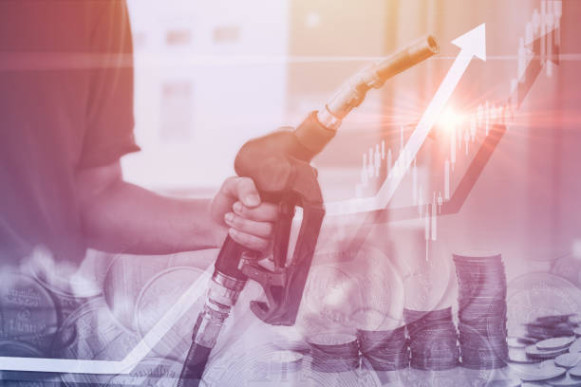- 6217
- 2
Sharing Ideas and Updates on LPG in Nigeria and related information to enable effective collaboration within the LPG Value Chain
Pricing As A Challenge For The Nigerian LPG Industry

In our previous blog post, we delved into the various obstacles and prospects within Nigeria's LPG industry. In this follow-up blog post, we will be examining an additional dimension of challenges that has raised concerns among industry stakeholders. Specifically, we will explore the issue of pricing as a significant challenge and propose potential solutions to address it.
Pricing as a Challenge
Price Volatility: LPG prices in Nigeria have shown a tendency to fluctuate, sometimes quite dramatically, due to various factors such as changes in international oil prices, exchange rate fluctuations, and supply and demand dynamics. These fluctuations can make it challenging for LPG distributors to maintain consistent pricing for their customers. Sudden price spikes can lead to higher operational costs and may even force distributors to pass on the increased costs to consumers, which can impact affordability and demand. This can be seen with the drastic increase in LPG prices which is now estimated to be around 1,000 Naira per KG.
Impact on Consumer Affordability: As LPG prices rise, the affordability of this cleaner cooking fuel becomes a concern, particularly for low and middle-income households. When prices reach a certain threshold, some consumers may revert to alternative, less expensive cooking fuels like kerosene or firewood, which can have adverse environmental and health consequences.
Profit Margins and Business Viability: For LPG distributors, maintaining healthy profit margins while navigating price volatility is a constant challenge. Rapid price increases can eat into distributors' profit margins, making it harder for them to sustain their businesses. To stay competitive, some distributors may need to absorb price increases temporarily, affecting their bottom line.
Consumer Behavior: Frequent price changes can influence consumer behavior. If consumers perceive LPG prices as unpredictable or consistently rising, they may be hesitant to switch to LPG as their primary cooking fuel. This uncertainty can slow down the adoption of LPG and hinder market growth.
Operational Costs: LPG distributors must often adjust their pricing strategies to account for changes in the cost of transportation, storage, and logistics. When LPG prices rise significantly, distributors may need to invest more in their infrastructure and equipment to meet the increased demand, which can be financially burdensome. "Refer to Standards Organisation of Nigeria ( SON) NIS 555 2014 for the Nigeria industrial Standards for LPG specification and NIS 69 2013 for Nigeria industrial standards for cylinder specification.
Market Competition: In a competitive LPG distribution market, price fluctuations can lead to intense competition among distributors. Distributors may engage in price wars to attract customers, potentially eroding profit margins and creating a challenging business environment.
One critical factor contributing to the surge in LPG prices in Nigeria is the complex landscape of freight logistics. The transportation of LPG from production hubs to distribution points across the country involves a web of logistical challenges, including inadequate infrastructure, road conditions, and distribution networks. These factors drive up transportation costs, which are ultimately passed on to consumers in the form of higher prices.
Way Forward:
To address the pricing challenge in the Nigerian LPG distribution industry, stakeholders, including government bodies and industry players, can consider the following measures:
Price Stabilization Mechanisms: Implement price stabilization mechanisms or policies to mitigate the impact of rapid price fluctuations. This could involve government intervention to stabilize prices or offer subsidies to keep LPG affordable for consumers.
Long-Term Supply Contracts: LPG distributors can explore long-term supply contracts with suppliers to secure pricing stability. These contracts can provide some insulation from short-term price volatility.
Consumer Education: Educate consumers about the long-term benefits of LPG, emphasizing its environmental advantages and cost-efficiency compared to other fuels. A well-informed consumer base may be more resilient to short-term price fluctuations.
Diversification: Diversify business operations by offering related products and services that are less susceptible to price volatility, such as LPG equipment sales or maintenance services.
Advocacy and Collaboration: Engage in industry advocacy and collaboration to influence policies that promote pricing stability and affordability for LPG consumers.
In conclusion, while pricing challenges are indeed significant in the Nigerian LPG distribution industry, proactive measures can help mitigate their impact and promote the long-term sustainability and growth of the sector. Addressing price volatility requires a coordinated effort from stakeholders across the industry to ensure that LPG remains an accessible and attractive option for households in Nigeria. Also, we ask that our readers monitor daily LPG prices on our platforms to keep abreast of the market. Click here for depot prices and here for mont belvieu (international) prices.
2 Comments.
-
-

Oluwabukola Jimoh
28 September 2023 - 06:47amThank you for your comment on the subject. Subsequently, I will explore the areas you have pointed out.
Reply
-
















Olajuwon, M.O
27 September 2023 - 08:44amThis is a good writer-up, but let quickly react on the way forward. 1. Price Stabilisation as it relates to subsidies. I will recommend that for whatever reason, we should stay clear of subsidies because ones introduced, may be difficult to set aside as being experienced in the case of PMS. Rather, we should be focusing all efforts at increasing local production. As long as we are still depending on foreign supply, price fluctuations will still persit. 2. Consumer education: l differ with this submission, there no amount of L/T benefits you put forward to consumers whose disposable income has already been depleted badly. From my experience, most Nigerians do not know that we import LPG. They claim we have abundance of gas in this Country. It takes an informed person to be able to convince consumers in this regard. So, l guess, one area that the bloggers need to focus is in the area of gas production and pricing.
Reply